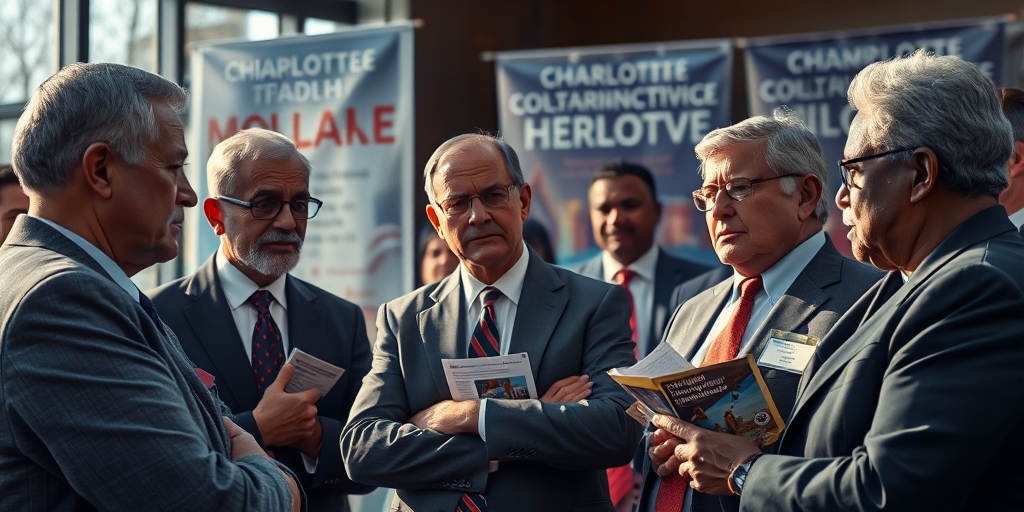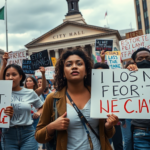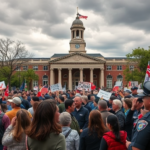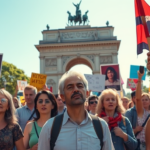Vi Lyles’ $250 Million Racial Equity Initiative Winds Down: A Mixed Bag of Results and Hope for Charlotte
The Mayor’s Racial Equity Initiative (MREI), launched by Charlotte Mayor Vi Lyles in 2021, aimed to tackle racial disparities across four focus areas in the city. With a goal of raising $150 million from the private sector, the initiative leaned heavily on corporate citizens to uplift the community, primarily through bolstering Johnson C. Smith University (JCSU), bridging the digital divide, developing the workforce, and supporting the “Corridors of Opportunity” in low-income areas. Now, as MREI approaches its fifth year, its legacy is characterized by both achievements and challenges, shedding light on the complexities of equity-driven efforts.
The Vision Behind the Initiative
Vi Lyles’ decision to champion this initiative stemmed from a deep-seated need to bridge gaps in equity that have historically affected the Charlotte area. The city’s economic progress has not been evenly distributed, leaving pockets of disparity — a situation that the MREI set out to rectify. The plan called for engaging the private sector, with corporate partners playing a vital role in fundraising and program execution.
“Our corporate partners have leaned in,” Lyles noted in a discussion about the initiative’s visibility in recent years, emphasizing that the private sector’s self-directed efforts have been a crucial part of MREI’s operations. While the broader public narrative around MREI has been quiet, tangible efforts continue in pockets of the city — a testament to the self-sustaining nature of the partnerships forged during this period.
Impact at Johnson C. Smith University
Among the most significant recipients of the MREI funds, JCSU has so far garnered over $51 million to enhance its educational offerings. This included hiring ten success coaches and developing programs in data analytics and business administration. Yet, sustaining these improvements beyond 2027 remains a concern, as the university must identify new funding sources to continue its progress.
Despite financial hurdles, JCSU has made strides, boasting the largest freshman class in a decade. However, its quest to climb the U.S. News & World Report’s HBCU rankings faces obstacles. The university’s drop from 26th to 36th highlights ongoing struggles, partly due to probation for financial compliance issues. “We are seeking out opportunities for sustainability,” stated Harriet Hobbs, a chief strategist at JCSU, expressing optimism about future funding avenues.
Addressing Digital Inequity
Another pivotal element of the initiative is the work undertaken by Queens University’s Center for Digital Equity. With $20 million pledged, their mission includes equipping low-income residents with technology and digital literacy skills, thanks in part to contributions from corporations such as Ally Financial. The program has allowed residents, especially seniors, to navigate an increasingly digital world.
“We meet people where they are,” explained Bruce Clark, the Center’s leader, highlighting hands-on assistance ranging from online banking tutorials to comprehensive digital navigation support, thereby creating tangible local impact.
Corridors of Opportunity: Potential and Untapped Funds
The Corridors of Opportunity initiative has drawn substantial donations, with $70 million yet unspent. The concern emerges from critics such as Robert Dawkins of Action NC, advocating for these funds to improve bus stop infrastructure. Lyles responded by indicating that these funds are already allocated, but the conversation about optimized spending continues to engage city stakeholders.
The Road Ahead for Charlotte
Balancing corporate-driven progress with public accountability remains at the forefront. While the MREI’s efforts in education and digital access have sparked local interest, the concern over unspent funds suggests a need for redirection or reallocation, addressing practical needs such as transit improvements.
The initiative’s community interest lays the groundwork for potential policy shifts and reinforces the need for transparency and public involvement. Mayor Lyles’ stress on building partnerships underscores a broader strategy for collective problem-solving beyond the initiative’s five-year span. However, the broader saga of equity in Charlotte continues beyond this initiative, addressing a dynamic landscape that will require ongoing commitment from all sectors.
Connecting to Broader Challenges
As the story of MREI unfolds, it becomes emblematic of the ongoing narrative in Charlotte: a city aspiring to become equitable and inclusive while acknowledging its historical and present challenges. The initiative adds a chapter to a longer story, setting a precedent that may inspire similar efforts in other urban areas aiming for equitable growth.
For further inquiries on the initiative’s outcomes and its legacy in Charlotte, residents can reach out to the city’s community development office. This evolving narrative of local impact aims to continue the discourse initiated by the MREI, embodying the strides toward genuine change in the Queen City.







